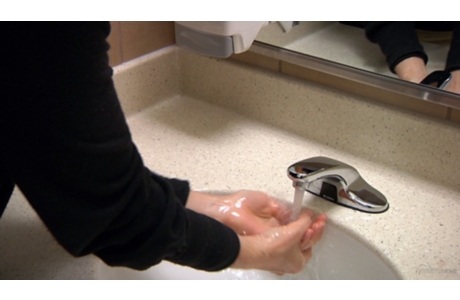Avoiding Infections in the Hospital
Topic Overview
Hospitals are full of sick people, so they have a lot of germs. And although health care workers do their best to kill germs and protect patients, they can’t always prevent infections.
Hospital infections can be very serious, especially if you’re already weak from whatever illness or problem put you in the hospital in the first place. An infection can add weeks to your hospital stay.
So it’s important to learn the steps you need to take to keep yourself as healthy as possible during your hospital stay.
Wash your hands
This is one of the most important things you can do to prevent infection while you’re in the hospital. Make sure to wash your hands:
- After returning to your room from other parts of the hospital.
- After shaking hands or otherwise touching visitors or members of your health care team.
- Before and after you eat.
- After using the bathroom.
- After using the phone or the TV remote control in your room or touching anything else in the room, like your window curtains.
- Anytime you think of it.
Keep a bottle of hand sanitizer next to your bed to clean your hands when you can’t—or don’t want to—get up to use the sink.
Make sure others wash their hands
All people who come in contact with you should wash their hands or use hand sanitizer when they first come into your room.
Health care workers already know they must do this, but sometimes they get in a hurry and forget. If you don’t see them wash their hands in your room, remind them to do it.
And don’t worry about offending them. Just say, “Oops, don’t forget to wash your hands!” They want you to do this. In fact, in some hospitals, doctors and nurses wear buttons that say, “Ask me if I’ve washed my hands.”
Visitors need to follow the same rules. That bottle of hand sanitizer next to your bed will be a good reminder. Just hand it to them when they first come in.
Other things you can do
As an active patient, you can protect yourself just by being fussy about germs:
- Don’t touch any wounds or sores.
- Tell your nurse right away if any bandages come loose or get wet.
- Tell your nurse right away if any part of your body seems to be getting red or swollen.
- If you’re given breathing exercises to do in your room—like deep breathing or using a spirometer—be sure to do them as you’re told. This helps prevent lung infection.
- Keep a box of disinfectant wipes on your bedside table, and regularly wipe your bed rails, the TV remote control, the phone, your call button, doorknobs, tabletops, and other surfaces.
- The more visitors you have, the more germs will be brought into your room. Depending on the reason you’re in the hospital, you may want to ask most friends to show their concern by calling or emailing you instead of visiting you.
These steps are important for every hospital patient. But they’re especially important if you have other health problems, such as lung disease, diabetes, or a disease that affects your immune system.
Current as of: December 13, 2018
Author: Healthwise Staff
Medical Review:Adam Husney MD – Family Medicine
This information does not replace the advice of a doctor. Healthwise, Incorporated, disclaims any warranty or liability for your use of this information. Your use of this information means that you agree to the Terms of Use. Learn how we develop our content.





